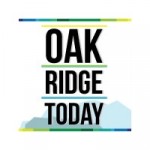By Oak Ridge Schools
We have all heard the phrase “going one-to-one,” but what is one-to-one all about? And why are Oak Ridge Schools interested in one-to-one?
The overall idea behind one-to-one is not about having specific devices; rather, it’s about providing personalized learning experiences to students aligned to the Seven Keys to College and Career Readiness in which students can collaborate, learn, reflect, and solve problems in ways that engage and motivate them. Highly effective teachers are essential in the development of personalized learning; they facilitate learning experiences both within their content area and spanning beyond the classroom and into the community. With personalized learning under the direction of highly effective teachers, student engagement increases, discipline problems decrease, attendance increases, and students become even more prepared for college and careers.
Most importantly, students who may not have access to technology due to financial or other considerations will have equal opportunities as their peers.
Adding to Oak Ridge Schools’ overall interest in providing opportunities to all Oak Ridge students, we also need to consider upcoming changes in state assessment. Next school year, Part One of the TNReady assessment is only offered online through the MIST platform that the state has been using for practice writing assessments. Additionally, the social studies test will be online next school year. These assessments will take place in two parts. Part One of both TNReady and the social studies assessment will occur in February through the first week of March of 2016, while Part Two of TNReady, the social studies assessment and the science assessment will occur in April to May of 2016. The only state assessment we expect to be paper/pencil next school year is the science assessment.
In order to be prepared for TNReady and social studies online assessments, we need to ensure that we have enough devices for our students to be able to take the assessments in the assessment windows. Therefore, within our existing budget for the 2015-2016 school year, we are intending to use resources that would have gone towards leasing devices for computer labs in order to go one-to-one at the middle school level. We would like to transition to one-to-one at high school and at the elementary levels when funds enable us to so. Going one-to-one would significantly improve the testing experience for every grade level we are able to impact.
The general timeline is the following:
- Device Roll Out: We would like to give staff, students, parents, and the community the opportunity to weigh-in on device selection. They can do this through the following survey:Â https://www.surveymonkey.com/s/PTSFX6Z, due by April 12. Once people have had an opportunity to give their feedback about device selection, a device review committee will convene to analyze the responses and provide recommendations to Oak Ridge Schools Superintendent Bruce Borchers. With School Board support, Borchers will send out a request for proposal for the purchase of the selected device(s) for pilot testing in the fall.
- Student Naming Contest: We are offering a student naming contest of our personalized learning initiative. For example, Houston Independent School District in Texas calls theirs PowerUp and Baltimore County in Maryland calls theirs STAT (Students and Teachers Accessing Technology). What should we call our initiative? Students will be able to give their input starting April 13. Winners will be selected as a grand prize winner (naming of the initiative) and two runners-up. Prizes will also be awarded to the three students chosen.
- Pilot: We are looking for teams at the middle school level to pilot the devices first. Once teachers have been chosen, those teams will start using the devices at the beginning of the 2015-2016 school year.
- Device purchase: If the pilots are successful, we will phase in the purchase and use of devices for all middle school students and teachers throughout the 2015-2106 school year.
- Boot Camp: We will have a technology boot camp in July. This boot camp is intended for teachers participating in the pilot. It will be repeated at other times for teachers receiving devices later. The technology boot camp will include topics such as the learning management system, learning to navigate the new device, using online textbooks and digital citizenship.
We are fortunate in Oak Ridge to have excellent teachers who make a difference with students every day. We are looking forward to experiencing how adding even more personalized learning into our programs will positively impact teaching and learning in the future.








Andrew Howe says
I like the approach. Feedback, gradual roll-out, all of it.
Wish I’d seen this before the survey closed, although it appears the window was rather short even if I had (9 hours from article post to closing).
Angi Agle says
Andrew, feel free to call or e-mail me with your input.
Ellen Smith says
Not much of a broad-based community survey, if it closed the same day the announcement was posted here! I wonder what the questions were.
David Allred says
The emphasis on “personalized learning” seems key, but I would be curious as to how the system defines that term. Compliance with “readiness” isn’t all that personalized, unless of course readiness is defined in a personalized way. I’ve worked with teenagers in Oak Ridge for about 25 years. My experience has been than we do a GREAT job at “readiness” with regards to standards that aren’t personalized, but rather bullet-pointed and whittled down to content information sets.
The education system (national / state / local) is designed around core content competencies, which isn’t a bad thing at all — rather it is woefully incomplete without the counterparts of creativity, intuition, inductive reasoning and so many of the other highly valuable & wholly human skill sets that comprise “personalized” thinking.
I would be curious to know more about how the system engages and rewards students for developing great questions, given that our measurement tools are consistently created to engage and reward students for their answers. And further, how does technology enhance that process rather than steer students toward faster and more efficient methods of obtaining answers.
The best example I can give was the creation of the pocket calculator. Since it’s arrival and distribution, there’s probably an average of 3-4 in every home or pocketbook in America. Despite having more like a 3-1 or 4-1 ratio of his technology to persons, the average American still cannot balance his or her checkbook or grasp the concepts of compounded interest, or add up the cost of a college degree and divide out the number of years they will be paying for all that college readiness. All of which are mostly “new” problems that appeared in our society about the time that “figuring” basic arithmetic became automatic rather than process oriented.
Plato pointed out this tendency two millennia ago in Phaedrus in which pupils “come to rely on external signs rather than internal resources” and thereby become “wise in reputation only, possessing a quantity of information while remaining void of proper instruction.” Plato concluded by saying such thinkers become a “burden to society rather than its liberators.”
I am way too tired and overextended to do much else than support the 1-1 system goals & lend myself over to the trust of the ORS staff. However as educators & professionals, I do expect that this level of thinking about education permeates all levels of the system, from the board to the administrators to the staff — and finally materializing in lives of our students.
It’s probably happening in many ways — however to fully ease concerns of people who do lean into “personalized” learning and lean away from the standards of “external wrote,” I think it would be good to continue dialogue about how it’s going to happen.
Just my two cents.
David Allred says
One more thing… and I apologize because I know it sounds like I am against 1-1 devices in the schools when truthfully, I am not against it at all.
I am concerned as both a parent and a citizen with the potential unconscious message we send that human beings (especially children) are somehow “better” with a piece of technology in their hands. While it is certainly true that technology enhances and even improves our lot in life when operated correctly, if the emphasis is on the machine and not our shared humanity working as both the means and the ends to certain problems, the subconscious message is that “we can’t” without good computer skills, that we are somehow incomplete without them.
Rome may not have been built in a day, but it was built without computers. Heck, we put people on the moon with less processing power than the common tablet today. Part of my struggles with Obama’s visit to East TN were the latent subconscious messages that tell young students what they “can’t” accomplish in the modern world unless they are properly tech trained.
The Digital Citizen forum last year went along way toward easing some of my concerns. Deepening that dialogue and addressing the reality that this is “not about the device” would be a great thing for the district to consider.
Again, I am not against a 1-1 roll out, and this sounds like a good approach, coupled with adequate training which appears to be in place for the coming months. But I would feel much better about it if the things that too often go “unsaid,” might actually be taught to our children — That they in fact can accomplish almost anything with human ingenuity alone and that every piece of technology that exists, or that will ever exist, is both secondary and subservient to the human will.
Ok, I will shut up now and return to my corner.
johnhuotari says
Andy and Ellen, I apologize for the short notice on this story, but I didn’t realize there was a survey deadline until I went to publish this release while trying to catch up over a weekend. But I thought it was better to publish it than not at all.
Angi Agle did post below that you can email or call her with input.
Thank you.
John